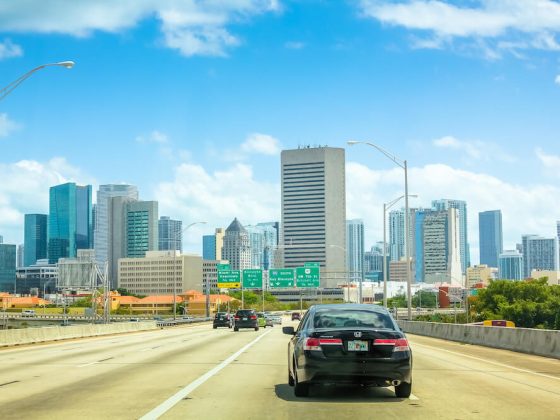Almost every state in the U.S. requires drivers to obtain some form of financial responsibility to cover certain costs associated with a car accident. In other words, you are required to get an auto insurance coverage. Nonetheless, drivers usually take their auto insurance application for granted, assuming normal approval without even knowing why auto insurance companies deny coverage.
Use eTags© to Quickly Complete Your DMV Service. Renewals, Title Transfers and More, All Online!
If you need to know more about your current driving status, let us show you 6 reasons why auto insurance companies deny coverage to high-risk buyers.
DUI/DWI
Normally DUI/DWI records directly impacts your eligibility to an auto insurance coverage. If your driving record shows that you had violations for driving under the influence (DUI) or driving while intoxicated, it would make it harder for auto insurance companies to process your application. In some cases, already-insured drivers with DUI/DWI are expected to pay a higher rate every time they try to renew their policy.
To reduce negative records, consider signing up for a defensive driving course or, in the future, avoid traffic violations and accidents.
Having Faultless Car Accidents And Injuries
If your driving record shows that you were involved in too many accidents, even if it wasn’t your fault, then you’ll also be considered a high-risk driver. Depending on your state and the policies outlined by an auto insurance company, the more accidents you face in your records, the less likely you are to get coverage. Keep in mind that insurance companies are risk-averse by nature.
If that’s your case, contact your auto insurance company to work out on a recovery plan that supports your case.
Long History Of Traffic Violations In Your Driving Record
Your driving record is a great source of information for car insurance companies to determine whether you may be refused coverage or charged even a higher premium. Drivers with a long history of accidents and traffic violations signal auto insurers that they are more likely to be involved in claim, hence, increasing financial risks.
Note that drivers who maintain a clean driving record tend to be rewarded by auto insurance companies with lower-rates auto insurance policies.
Lower Credit Scores
Drivers with a lower credit score are more likely to get their auto insurance coverage denied. Unless you reside in California, Hawaii, or Massachusetts, auto insurers are under no obligation to reveal the credit scores they use to evaluate your request. That said, the lower your credit score, the less likely you’ll obtain an auto insurance coverage. In the best-case scenario, you could be eligible for an auto insurance coverage for a higher rate regardless of your driving record.
It is advisable to keep your credit-card balances in check, repair your credit, and/or try to work with auto insurance companies that don’t penalize drivers for lower credit scores.
Accumulating Insurance Violations, Including Gaps In Car Insurance Coverage
A typical example of insurance violations refers directly to your ability to pay your auto insurance premium on time. As rules vary from state to state, late payers face a huge risk of not getting coverage for their vehicle and insurers have every right to be strict about it. Auto insurance providers also deny coverage to those drivers whose driving record show gaps in coverage.
Whether you’ve accumulated lapses in coverage, or whether you’ve been driving without an car insurance policy, make sure you have a valid reason to justify any gaps in coverage in which you were not responsible:
- Auto insurance company going out of business.
- Losing your license, hence, lapsing your coverage.
- Reasons why you decided to not longer drive or own a car.
- Relocation – Moving to another country.
Owning A High-Performance Car
Sometimes your eligibility to obtain an auto insurance could be reduced to the type of vehicle you own. Insuring a high-performance vehicle, say Lamborghini, could easily tag you as a “high-risk” driver because the likelihood of you getting involved in a car accident and, therefore, file a claim would rate the highest. Vehicles drivers must pay attention to the following features:
- Insurers assess vehicles based on engine size, engine speed, handling, and safety ratings.
- Insurers also associate vehicle with drivers. That mean drivers owning a high-performance vehicle would be ranked as high-risk drivers for the potential risk of getting involved in a car accident.
If any of those situations applies to you or you’ve been denied auto insurance coverage for any other reason, contact us to help you save money on your car insurance now.








